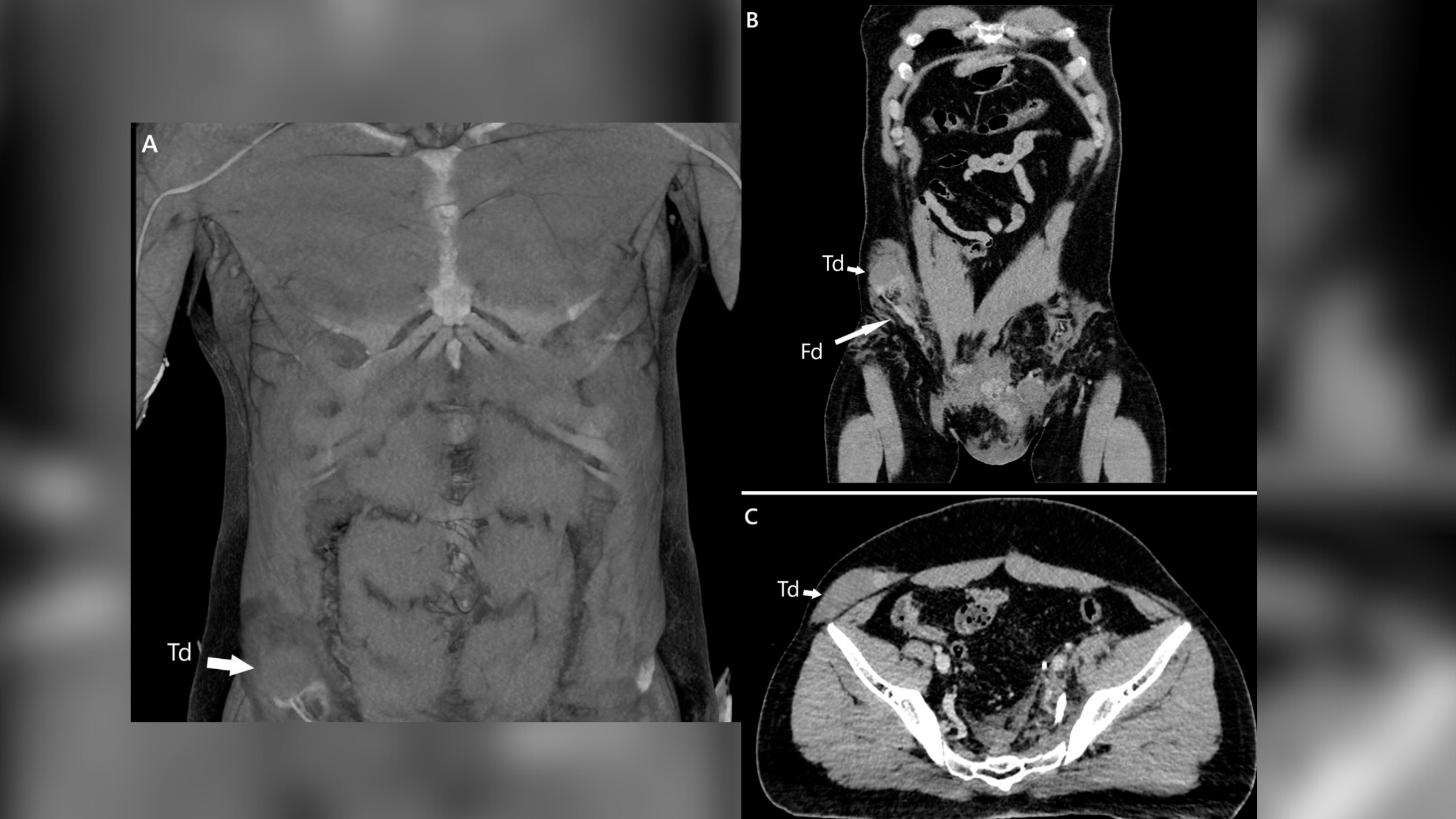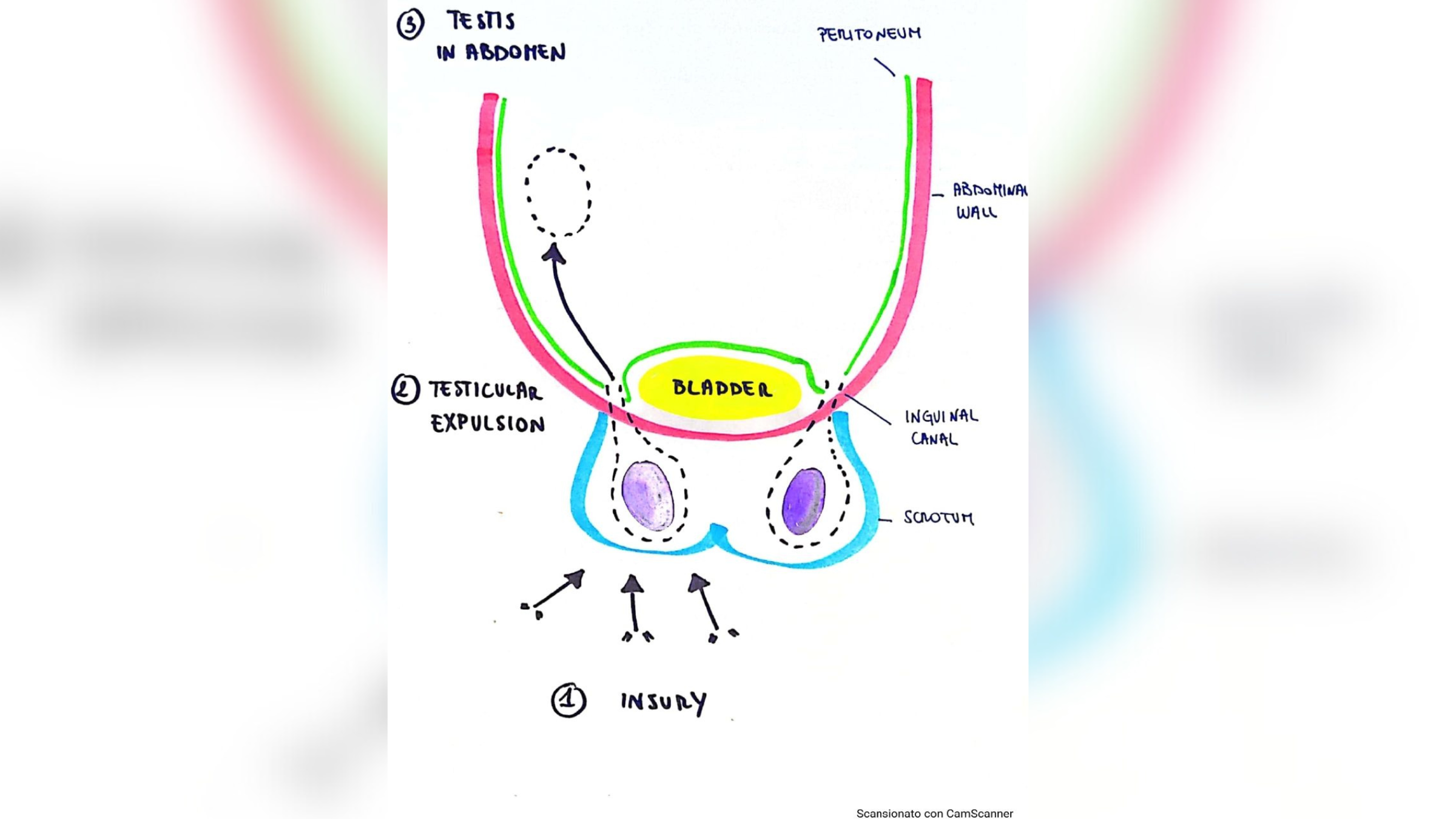Motorcycle crash dislocated a man's testicle into his abdomen
The sheer force of the motorcycle accident pushed the man's right testicle up through a small passageway in the groin and into his abdomen.
A motorcycle crash knocked a man's testicle out of place and pushed it up into his body, leaving him in severe pain, doctors report.
The trauma from the crash had pushed the man's right testicle from its usual spot in the scrotum — the thin sac of skin that normally houses the two testes on the outside of the body — through a small passageway in the groin and up into the abdomen.
The passageway, known as the inguinal canal, is usually about 1.6 to 2.4 inches (4 to 6 centimeters) long in adults. The tube forms as the external genitals make their way out of the abdomen, where they initially develop in the embryo. Both male and female reproductive systems have this canal, although the sexes differ in the type of structures contained within the passageway.
It is rare for trauma or injury to dislocate the testicles from their place in the scrotum, the man's doctors noted in a recent report, published Sept. 26 in the journal BMJ Case Reports. However, about 80% of reported cases happen in men in their mid-20s who have been in a motorcycle accident, they found in a review of the literature. But only rarely — about 6% of the time — do the testicles make it as far as the abdomen.
Related: Doctors film microscopic worms dancing inside man's scrotum
In the recent case, the doctors first had to remove pooled blood from the man's groin and warm the oxygen-deprived testis until it regained its normal color. Then, they surgically repositioned the man's right testicle using a type of surgery called orchidopexy. (This procedure is also used in children with a common birth defect in which a testicle doesn't fully descend during early development.)
The authors of the report noted how difficult it can be for doctors to spot a testicular dislocation. That's because severe injuries and pooled blood left in the groin area from such traumatic incidents can make it difficult to physically examine the scrotum. In a previous case, it took nearly a year for a patient to be diagnosed after a motorcycle crash. Such delays can have serious consequences; prompt diagnosis is needed to avoid any potential impacts on fertility and hormone production, the authors wrote.
Get the world’s most fascinating discoveries delivered straight to your inbox.
In the recent case, doctors did have a slight delay in diagnosing the man with testicular dislocation. The man arrived at the emergency department with a large hematoma in his scrotum, which is where blood leaks out of the veins or arteries as a result of trauma and collects in the surrounding tissue. So at first, doctors weren't able to properly examine the man's testicles and were primarily focused on managing the active bleeding, as well as tending to extensive fractures in his pelvis and ensuring that his bladder was intact.
With the help of a computed tomography (CT) scan, though, doctors identified the dislocated testicle and then moved it to its proper place.
Within six months, the testis was back to normal, with no signs of lasting damage to its important functions, such as hormone or semen production.

Emily is a health news writer based in London, United Kingdom. She holds a bachelor's degree in biology from Durham University and a master's degree in clinical and therapeutic neuroscience from Oxford University. She has worked in science communication, medical writing and as a local news reporter while undertaking NCTJ journalism training with News Associates. In 2018, she was named one of MHP Communications' 30 journalists to watch under 30.




